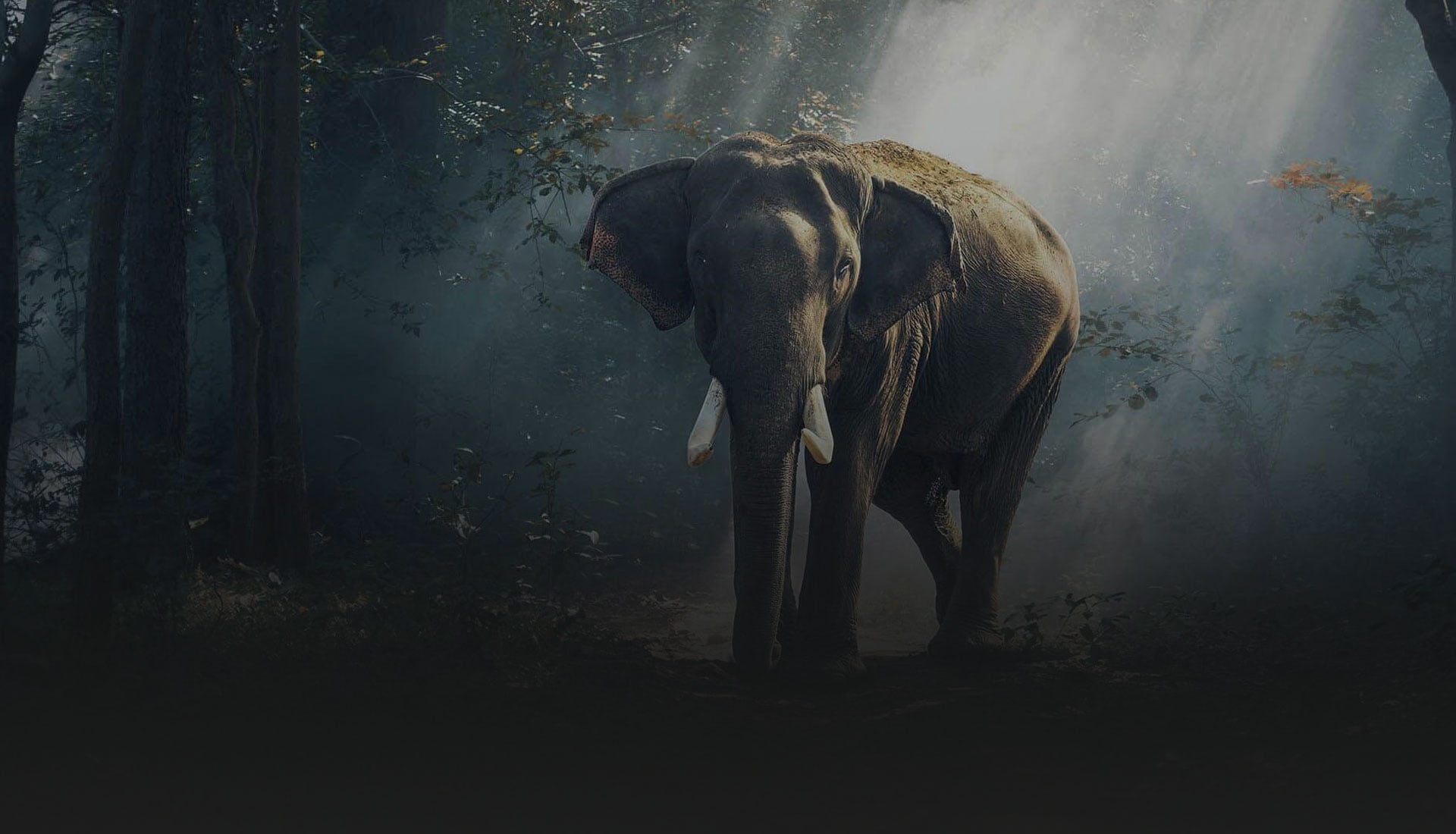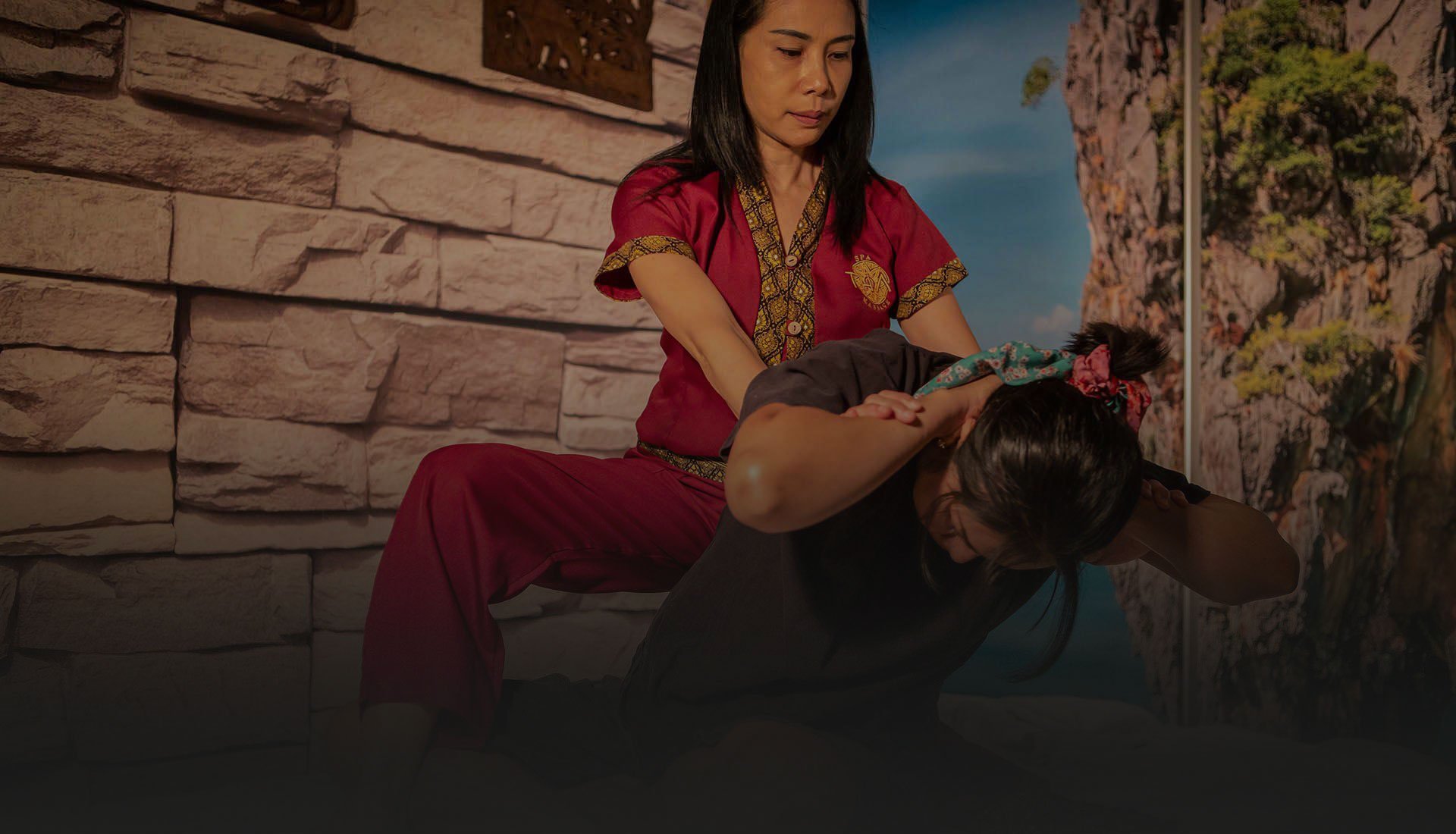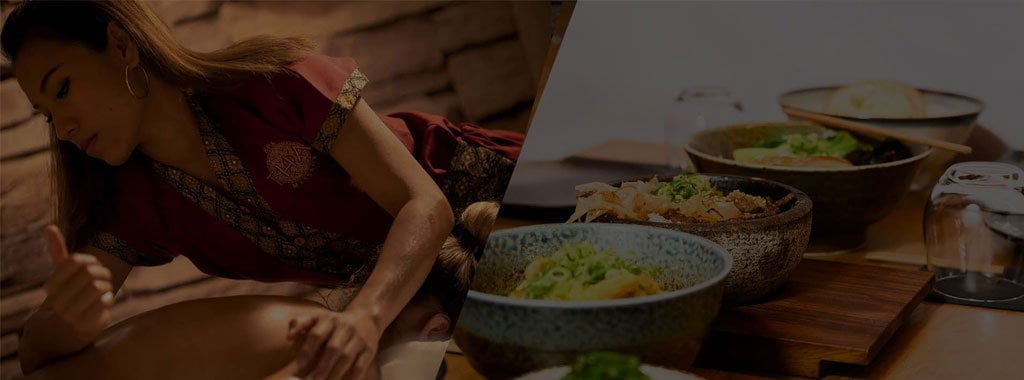It is difficult to know for sure who was the best monarch of a country, but Bhumibol Adulyadel, the ninth king of Thailand of the Chakri dynasty, won the affection of his people and is, for many, the best king of Thailand
A distinguished lineage
Bhumibol Adulyadej was not born in Thailand. He was born in Cambridge, Massachusetts, on December 5, 1927 at 8:45 am. Many years later, in 1960, Dr. W. Stewart Whittemore would confess to the Boston Globe that he was, indeed, “a very good baby.”
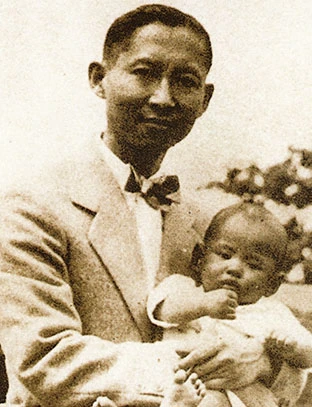
If the king of Thailand was born in America, it was because his father, Prince Mahidol Adulyadej of Songkla—also considered the father of modern medicine in Thailand—studied public health at Harvard. His patients affectionately called him “Mho Chao Fa” (‘Doctor Prince’). After his early years of training in Bangkok, little Bhumibol and his family moved to Switzerland, where the future monarch continued his political science education at the University of Lausanne, maintaining during that time a distant but persistent link with Thailand.
A coronation surrounded by tragedy

Portrait photograph of King Ananda Mahidol in 1939
Mahidol’s accession to the throne is a story shrouded in mystery and shock, marking a turbulent chapter in Thai history. On December 8, 1941, Japanese forces invaded the country when Bhumibol Adulyadej’s very young elder brother, Ananda Mahidol, had just ascended to the throne. Defeated by a Japanese offensive, Thailand joined the Axis during World War II.
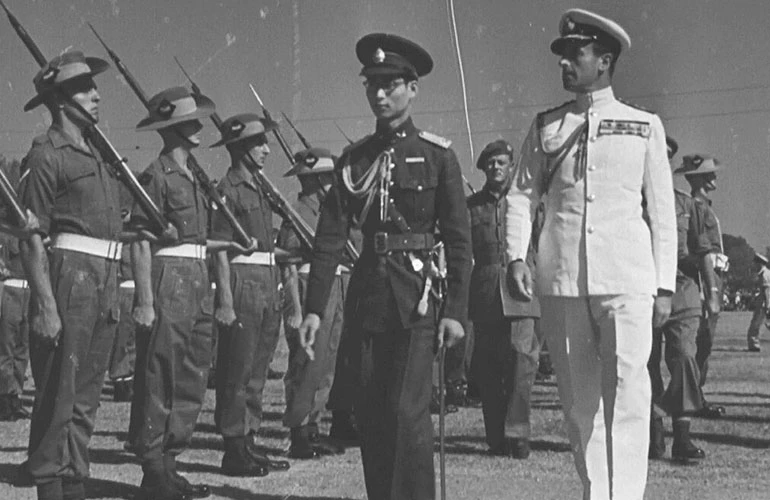
King Ananda Mahidol and Louis Mountbatten on 19 January 1946
On June 9 of that same year, the young king of Thailand, Ananda, was found dead in his bedroom in the Boromphiman Throne Room. That same day, a radio announcement suggested that his death was the result of an accident while playing with a gun. However, in October of that year, the findings of a thorough investigation revealed that his death was far from accidental, although neither murder nor suicide could be conclusively proven.The subsequent judicial process, which lasted until May 1951, culminated in a verdict of murder. Although the court could not directly attribute responsibility to the accused individuals—Chaliao, Chit and But—Chit was found guilty of complicity. After multiple appeals and intense deliberations lasting years, the Supreme Court finally upheld the convictions of Chit and But and, in a surprise turn, also convicted Chaliao. Years later, pleas for clemency did not move the subject of this article, King Bhumibol Adulyadej, who rejected the requests.
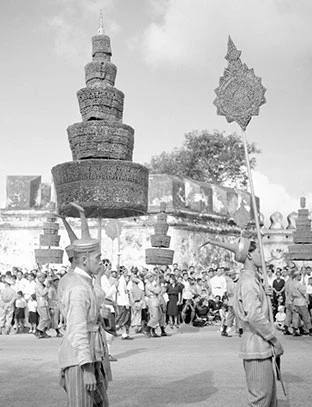
Funeral procession of King Rama VIII
Those three men died in front of a firing squad on February 17, 1955. Curiously, years later, the King of Thailand Bhumibol expressed doubts about their guilt. The tragic story of King Bhumibol Adulyadej’s elder brother Ananda Mahidol concluded with his cremation in Sanam Luang, Bangkok, on March 29, 1950—four years after his death—marking the end of a tumultuous period and leaving a nation in mourning.
The early years of King Bhumibol

n 1946, after the tragic and mysterious death of his brother, Bhumibol took up the challenge of the throne at the age of 18, with the resolution to continue his training in political science and law in Switzerland. During this period, he found love with the young Sirikit Kitiyakara, the famous and much loved Queen Sirikit.
And in October 1948 the king suffered a serious car accident in Lausanne, Switzerland, which led to him losing his right eye. He recovered from the accident at the University Hospital of Lausanne, (Centre Hospitalier Universitaire Vaudois), but this accident changed his life: during his stay in the hospital, he received frequent visits from Sirikit, who at that time was a young noblewoman close to the family. These visits were essential to cement their relationship, and love was born. Their wedding, performed by Bhumibol’s elderly grandmother, Savang Vadhana, was described by The New York Times as “the shortest and simplest royal wedding ever held in the land of golden elephants and white umbrellas.
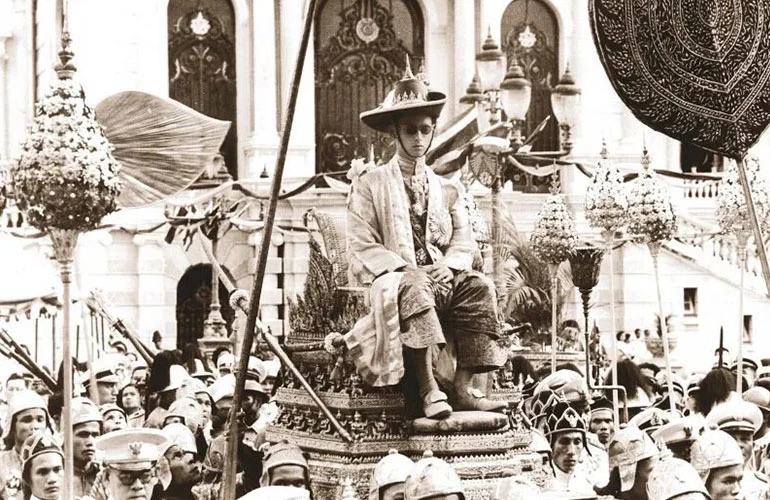
Coronation ceremony of His Majesty the King in 1950
How was the coronation of Bhumibol, king of Thailand??
On May 5, 1950, the Phaisan Thaksin Throne Room in the majestic Grand Palace in Bangkok witnessed a historic event: the first coronation ceremony of a Thai monarch under the constitutional monarchy system. During this solemn occasion, Bhumibol made a resounding vow, promising to “reign with righteousness for the benefit and happiness of the Siamese people.” This ceremony was marked by symbols of royal dignity and tradition, including the Bahadrabith Throne, located under the imposing Great White Umbrella of State, surrounded by royal insignia and utensils. That same day, Bhumibol’s consort was elevated to the status of queen (Somdej Phra Boromarajini). In Thailand, the memory of this day endures, being celebrated every May 5 as Coronation Day, a national holiday. After the ceremony, the royal couple chose the coastal city of Hua Hin for their honeymoon. If what seduces you most about Thailand are its paradisiacal beaches, don’t stop reading our last publication. However, their stay there was brief, as they soon left for Switzerland, where Bhumibol intended to finish his university studies. It was not until 1951 that the royal couple made their permanent return to Thailand.
Bhumibol’s connection to Thai traditions deepened after the passing of his grandmother, Queen Savang Vadhana. Following Buddhist customs, he became a monk for 15 days (October 22 to November 5, 1956) at Wat Bowonniwet.

The temple of Wat Bowonniwet, which housed the king during his stay
This decision, made by many Buddhist men after the loss of a close relative, culminated in his ordination by the Supreme Patriarch on October 22, 1956 at the Royal Chapel of the Emerald Buddha, located within the Grand Palace. During her spiritual retreat, Sirikit assumed her responsibilities, being named regent. In recognition of her role, she was honored with the title of Queen Regent (Somdej Phra Boromarajininat).
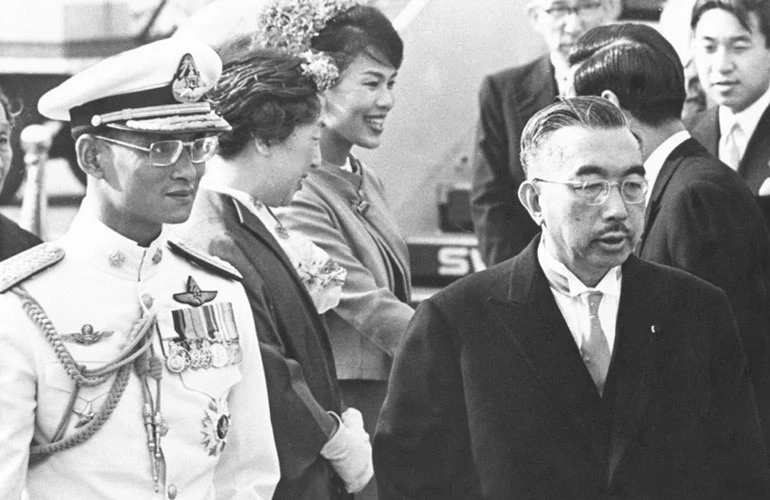
The beginning of his political career
In the early years of his reign, under the rule of military dictator Plaek Phibunsongkhram, Bhumibol lacked real political power and played primarily a ceremonial role in a government dominated by the military. In August 1957, six months after the parliamentary elections, General Sarit Thanarat accused Field Marshal Phibunsongkhram of lese majeste due to his conduct at the celebration of the 2,500th anniversary of Buddhism.
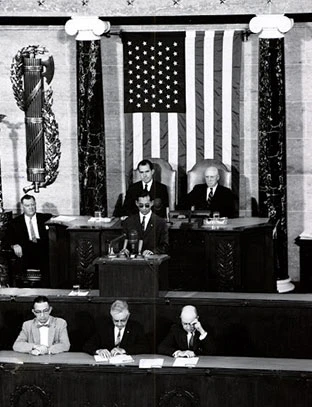
King Bhumibol Adulyadej addresses the 86th United States Congress 1960
On 16 September 1957, Phibunsongkhram sought Bhumibol’s support for his government, but the king advised the field marshal to resign to avoid a coup d’état, advice which Phibunsongkhram rejected. That same night, the opposition Sarit Thanarat took power.
During the Sarit dictatorship, the monarchy was revitalized. Bhumibol participated in public ceremonies, toured the provinces and supported development projects. Additionally, he visited the United States in June 1960, where he addressed Congress, and made visits to several countries in Europe, including a visit to Rome hosted by Prime Minister Giovanni Gronchi in September 1960.
What were your 5 greatest achievements on the throne?
The reign of King of Thailand Bhumibol Adulyadej was marked by several achievements for which the Siamese people are very grateful and his legacy endures as a benchmark in the modern history of Thailand.
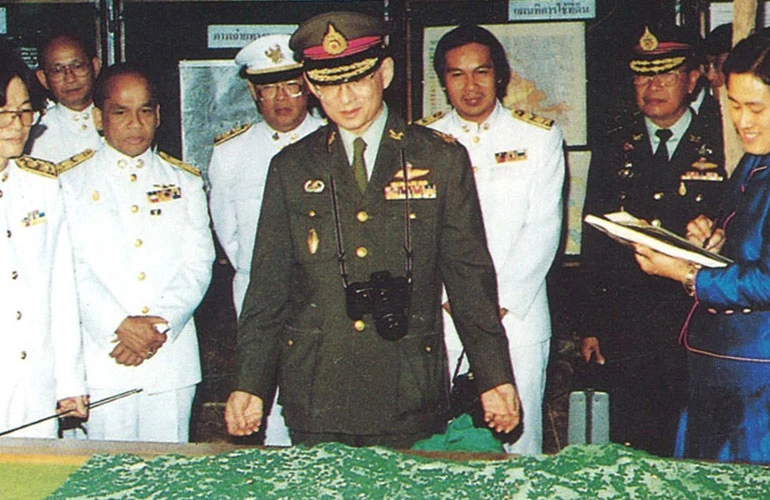
1- Great economic development: During the 1960s and 1970s, Thailand experienced remarkable economic growth under Bhumibol’s leadership. The king supported rural development, agriculture, and technology projects to improve the quality of life of the population and reduce poverty in rural areas.
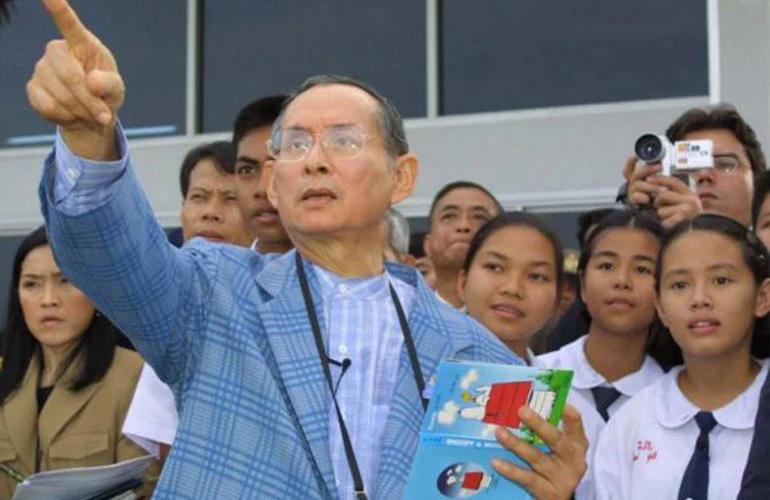
2- Commitment to modernization and education: Bhumibol promoted the modernization of education in the country, contributing to the increase in literacy and the development of a more qualified workforce. It focused on promoting technical and scientific education to improve the quality of life in Thailand in the future.

3- He achieved unprecedented agricultural development: under his leadership, sustainable agriculture and the improvement of agricultural techniques were promoted. This helped Thailand become a major exporter of rice and other products. In honor of his work in soil science, the United Nations has celebrated the king’s birthday, December 5, as World Soil Day since 2014.
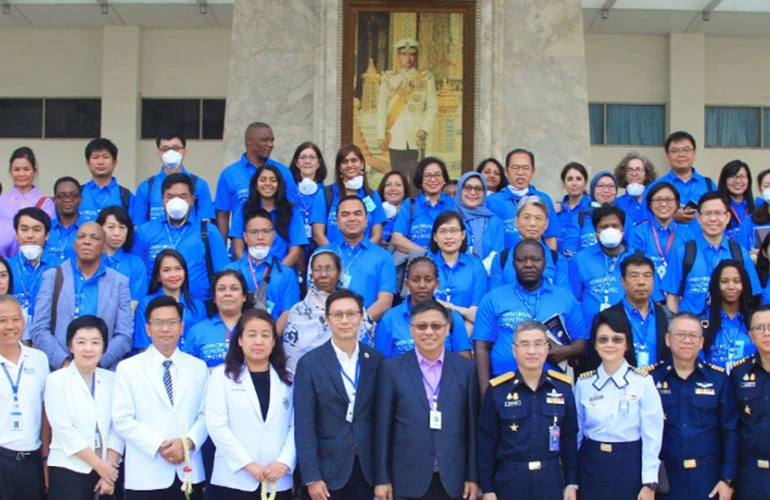
4- Support for Public Health: The king of Thailand showed great interest in public health and supported the expansion of health care services throughout the country. His royal initiative sponsored the creation of hospitals and clinics to improve access to medical care.
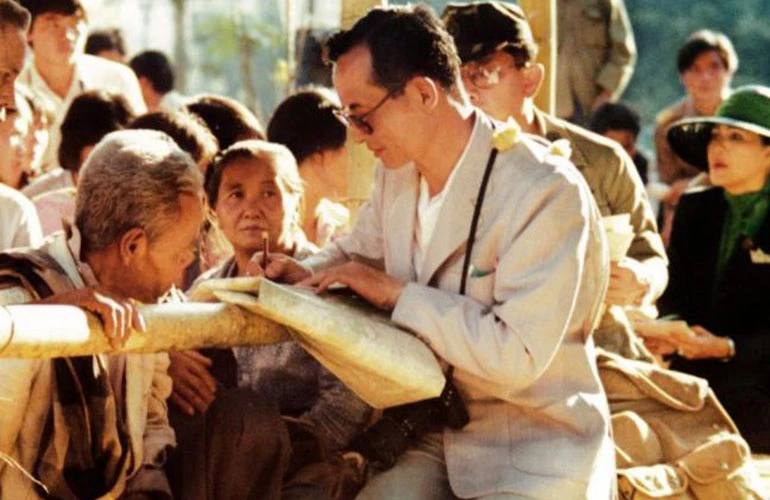
5- Dedication to philanthropic activities: the king and his family actively participated in philanthropic and charitable activities. They established numerous projects and foundations to help disadvantaged communities and support humanitarian causes.
Although Thailand went through periods of political instability during his reign, the king played an important role in promoting stability and reconciliation. His presence was a unifying factor in critical moments and became an almost divine symbol for the Thai people. His constant presence in the country’s public life and his dedication to improving the quality of life of citizens made him a respected and loved leader.
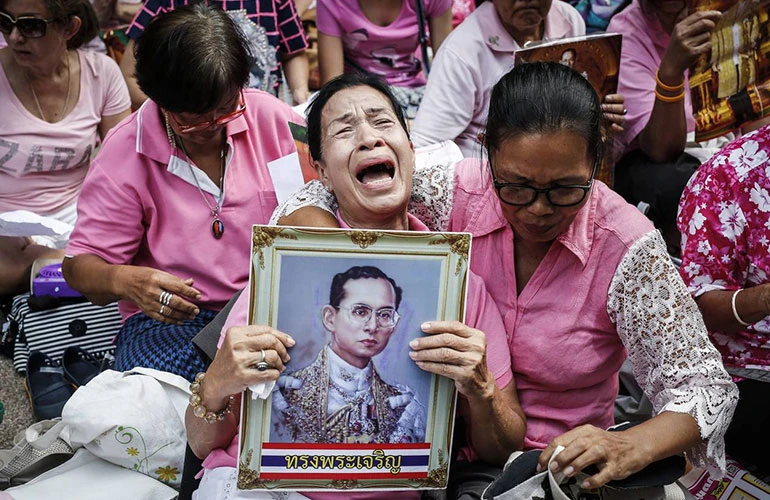
The day when the country of smiles cried
On October 13, 2016, Thailand mourned the loss of its beloved monarch, King Bhumibol Adulyadej, who passed away at the age of 88 at Bangkok’s Siriraj Hospital at 3:52 p.m. The next day, his body was carried in a solemn motorcade to the Grand Palace, where the traditional bathing rite for the king of Thailand was carried out. Along the route, thousands of mourners gathered to express their deep affection for their “king of kings.” The royal procession arrived at 5:00 p.m. through the Viset Chaisri Gate.
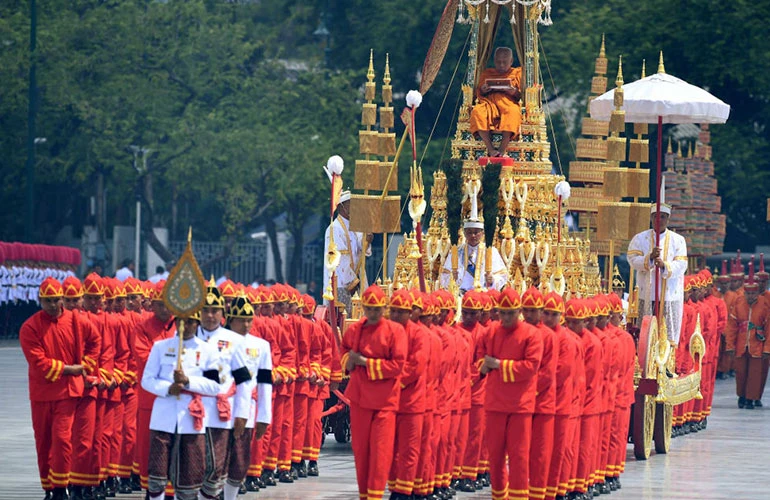
Royal Thai military officers pull the Rajarot Noi, carrying the Supreme Patriarch, during the funeral procession of the late Thai King Bhumibol Adulyadej
In this emotional event, Crown Prince Maha Vajiralongkorn, who was next in line to rule the kingdom, presided over the bathing ritual in the majestic Throne Hall of Phiman Rattaya. Then in October 2017, a royal cremation ceremony took place that lasted five days. The cremation, which was not broadcast on television, took place on the afternoon of 26 October 2017. The king’s ashes were respectfully transferred to the Grand Palace and enshrined in the Sacred Throne Hall Chakri Maha Phasat, the Royal Cemetery at Wat Ratchabophit and the Wat Bowonniwet Vihara Royal Temple. The mourning period officially came to an end at midnight on October 30, 2017, marking the return of Thais to their usual colors. This moment would culminate in the future coronation of King Vajiralongkorn, an event that finally took place between May 4 and 6, 2019.
Conductor and clarinetist Benny Goodman (1909 – 1986) invites King Bhumibol of Thailand to his New York apartment for an improvised session
Much more than a head of state
Bhumibol Adulyadej was much more than a respected king of Thailand: he was one of those almost mythical figures. So virtuous, it’s hard to believe. He was a man of multiple talents and passions. Bhumibol stood out as a painter, musician, photographer, author and translator. His book “Phra Mahachanok” was based on a traditional Jataka story of Buddhism, while his publication “The Story of Thong Daeng” recounts the life of his beloved dog, Thong Daeng.

Bhumibol Adulyadej’s saxophone, exhibited at the National Museum in Bangkok
During his youth, Bhumibol showed a deep interest in firearms. He had a collection that included a carbine, a Sten pistol and two automatic pistols in his bedroom. Together with his elder brother, King Ananda Mahidol, they used to use the palace gardens for shooting practice. And when it came to music, Bhumibol was a talented jazz saxophonist and composer, exploring styles such as Dixieland and New Orleans jazz. He also mastered the clarinet, trumpet, guitar and piano. He composed a total of 49 works, including popular pieces such as “Candlelight Blues,” “Love at Sundown” and “Falling Rain.”
His list of skills and hobbies doesn’t end here: Bhumibol was a radio amateur with the call sign HS1A and sponsored the Thai Amateur Radio Society Oh! Additionally, Bhumibol holds the title of being the only Thai monarch to hold a patent. In 1993, he won one for a sewage aerator called “Chai Pattana.”
Being a monarch, Bhumibol Adulyadej’s life is, naturally, full of adventures, transcendent moments and crises. Perhaps his extensive list of talents and hobbies are another testament to his versatility and passion, or perhaps it is an elaborate—and quite credible—publicity stunt. Be that as it may, it worked: the Thai people adored the monarch, whom we wanted to honor with this article.


